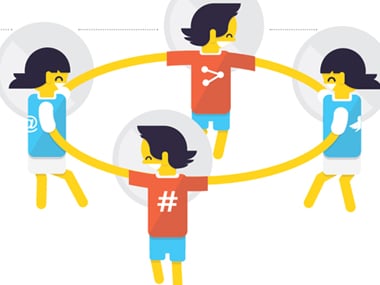India ranks highest among a few Asian countries in cyber bullying with 53 percent currently utilizing the internet between the ages of 8 to 17 and have faced some form of online bullying more than once. This is in contrast to a sizeable 49 percent children who face cyber bullying in Bangladesh, 33 percent in Thailand and only one in 4 children in Malaysia, according to the Norton Cyber security Insights Report by Norton by Symantec. [caption id=“attachment_2840674” align=“alignleft” width=“380”]  Courtesy: Telenor India[/caption] Cyberbullying refers to electronic communication used for the purpose of bullying. In the latter half of 2015, Intel Security released its Teens, Tweens and Technology Study 2015, which revealed that 81 percent of Indian children between the age of 8 and 16 were active on social media networks and of these 22 percent reported being bullied online. This was the highest when compared to Australia, USA and Singapore being part of the survey. What children will post today on social media networks will come to haunt them in the future is a fear that most Indian parents share. They fear cyber bullying is more evident than physical bullying. According to the Norton Cyber Security Insights Report by Symantec, close to one in two parents believe their children are safer from bullies on a playground than online. By 2017, 134 million children in India will be online, giving them access to a information and knowledge. Compared to the global average, Indian parents are 20 percent more likely to limit their child’s online activities. A sizeable 49 percent of school students in Bangladesh have experienced either ‘being bullied or disturbed online,’ by the same person both online and offline’ or have actually engaged in bullying others online. The same percentage said they submitted to at least one form of peer pressure. Bangladesh has a lower percentage than India with regard to cyber bullying simply because less than half of school students choose to confide in parents and teachers when faced with online issues. Internet usage by schoolchildren in all states in Malaysia is more than 90 percent on average. Though one in four report have experienced cyber bullying, a 2015 study revealed that the majority of Malaysian schoolchildren are aware that such behaviours can be identified and reported. In the face of online threats by peers, most Malaysian children are likely to adopt a privacy setting or blocking strategies, and are aware of the channels to report to teachers or relevant authorities. Nonetheless, there is a high likelihood that many youngsters will keep quiet and hope the cyber bullying will stop, rather than consult a trusted adult. Malaysian students also ranked highly in terms of being aware of what constitutes socially acceptable behaviors on the internet and are open to following online rules set by parents. Overall, 67 percent said they felt able to improve or solve any cyberbullying problems themselves or with adult help. This higher percentage could be attributed to consistent efforts to increase internet safety awareness among Malaysian school students, including DiGi’s CyberSAFE programme. Overall, 33 percent of Thai school students have experienced either ‘being bullied or disturbed online,’ ‘being bullied by the same person both online and offline’ or they have actually engaged in the act of bullying others online. Additionally, 35 percent of Thai students have said they succumbed to at least one form of peer pressure such as being encouraged to visit unsuitable websites or use bad language online. Of the Thai students encountering cyberbullying and online peer pressure, 59 percent responded said that they felt capable of resolving such issues by themselves or with adult guidance. Notable was the level of students in Thailand who said when faced with online issues that they do not know how to solve alone: 55 percent said they were likely to approach their parents, far higher than Bangladesh at 38 percent saying they would consult their guardians. By frequently consulting with parents, children can better navigate the challenges of interactions online. Telenor India has come out with safety norms for parents so as to be able to protect children from cyber bullying. These include limiting the time children spend online, to keep talking to children and learn new technology from and with them, getting children to share their favorite websites with them. “Set rules, critique content and openly communicate with kids. Keeping kids safe means setting guidelines and having critical and non judgmental discussions about internet behavior,” a company press release said.
Cyberbullying refers to electronic communication used for the purpose of bullying.
Advertisement
End of Article


)

)
)
)
)
)
)
)
)



